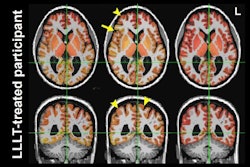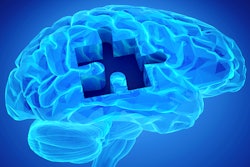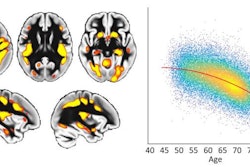High blood pressure has a negative effect on the brain's white matter -- and not just in older adults but in younger ones as well, researchers have reported.
A study conducted by a team led by Junyeon Won, PhD, of Texas Health Presbyterian Hospital in Dallas found that diffusion-weighted MRI brain white matter metrics showed a connection between hypertension and white matter abnormalities. Their results were published March 15 in Hypertension.
"[We found that] high blood pressure and high hypertension stage were associated with [diffusion-weighted MRI white matter brain characteristics]," the group wrote.
High blood pressure in middle-aged and older adults has been linked with microstructural abnormalities in brain white matter. But there's less research about whether this connection also exists in healthy young adults, the group explained. To address this knowledge gap, Won's team conducted a study that included data from 1,015 young adults between the ages of 22 and 37 taken from the Human Connectome Project. The team measured participants' brachial systolic and diastolic blood pressure. All participants underwent diffusion-weighted MRI and the investigators assessed any associations between blood pressure and hypertension stage with diffusion tensor imaging (DTI) brain white matter metrics after adjusting for age, sex, education, body mass index, smoking status, and history of alcohol consumption.
The group found that participants with higher blood pressure and hypertension stage had higher free water (FW) and lower free water-corrected axial diffusivity, free water-corrected radial diffusivity, and free water-corrected mean diffusivity – all markers of abnormalities in brain white matter. It also found that men were more vulnerable to this effect, manifesting connections between high diastolic blood pressure and hypertension stage with high free water that women did not.
The conclusion was that hypertension in younger adults can have a damaging effect on the brain, according to the researchers.
"High blood pressure in young adults is associated with altered brain white matter microstructural integrity, suggesting that [it] may have damaging effects on brain white matter microstructural integrity in early adulthood, particularly in men," they concluded.
The complete study can be found here.




















